The Antidote for Rage is Nuance
In Conversation with Adam Golub
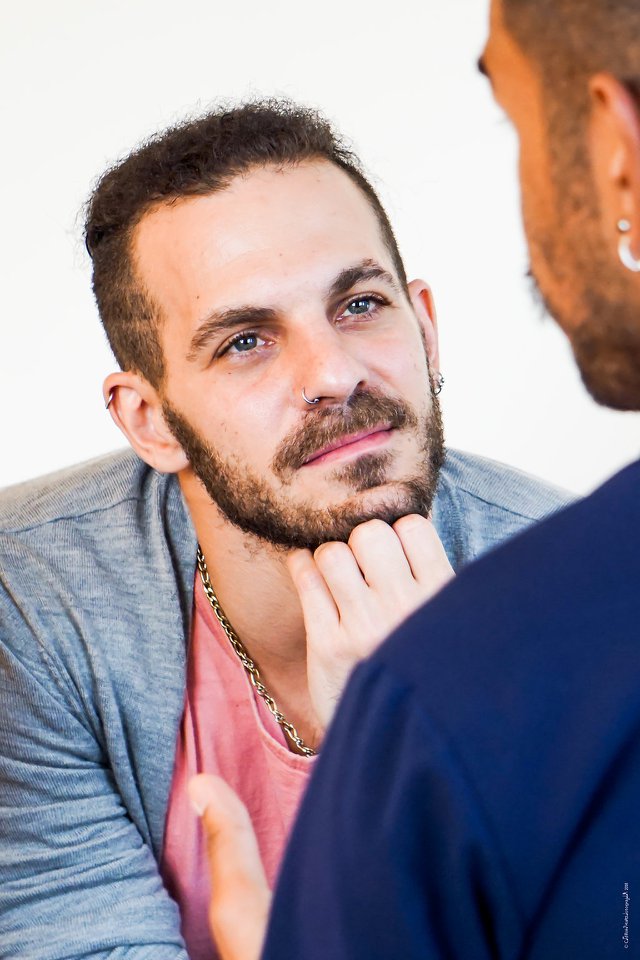
Photo by Cid Roberts
Adam Golub is an Israeli-American documentarian, media artist and videographer based in Brooklyn, NY. He completed his master’s in journalism at Columbia University in 2012 and the Collaborative Studio program at UnionDocs Center for Documentary Art in 2014. His film “I Was Here First” (2015), about the exodus of DIY art spaces from Williamsburg, Brooklyn, premiered at DOC NYC. His film “Skin,” (2017) a portrait of a young black trans activist in Rio de Janeiro, won Outstanding Documentary Short at Art of Brooklyn Festival and Best New York Short at Newfest, New York. His feature doc “Your Mother’s Comfort” (2020) premiered at Sheffield Doc/Fest and won the Grand Jury Award at Outfest, Los Angeles, as well as honorable mention at NewFest, New York.
Interviewed by Billy Lezra | October 8, 2020
The following interview has been edited and condensed for clarity.
How did you find out that you won the Outfest Grand Jury Prize for Your Mother’s Comfort?
They emailed us. I was sitting on a lake next to South Lake Tahoe with my friend and her mom and grandmother. I just started crying.
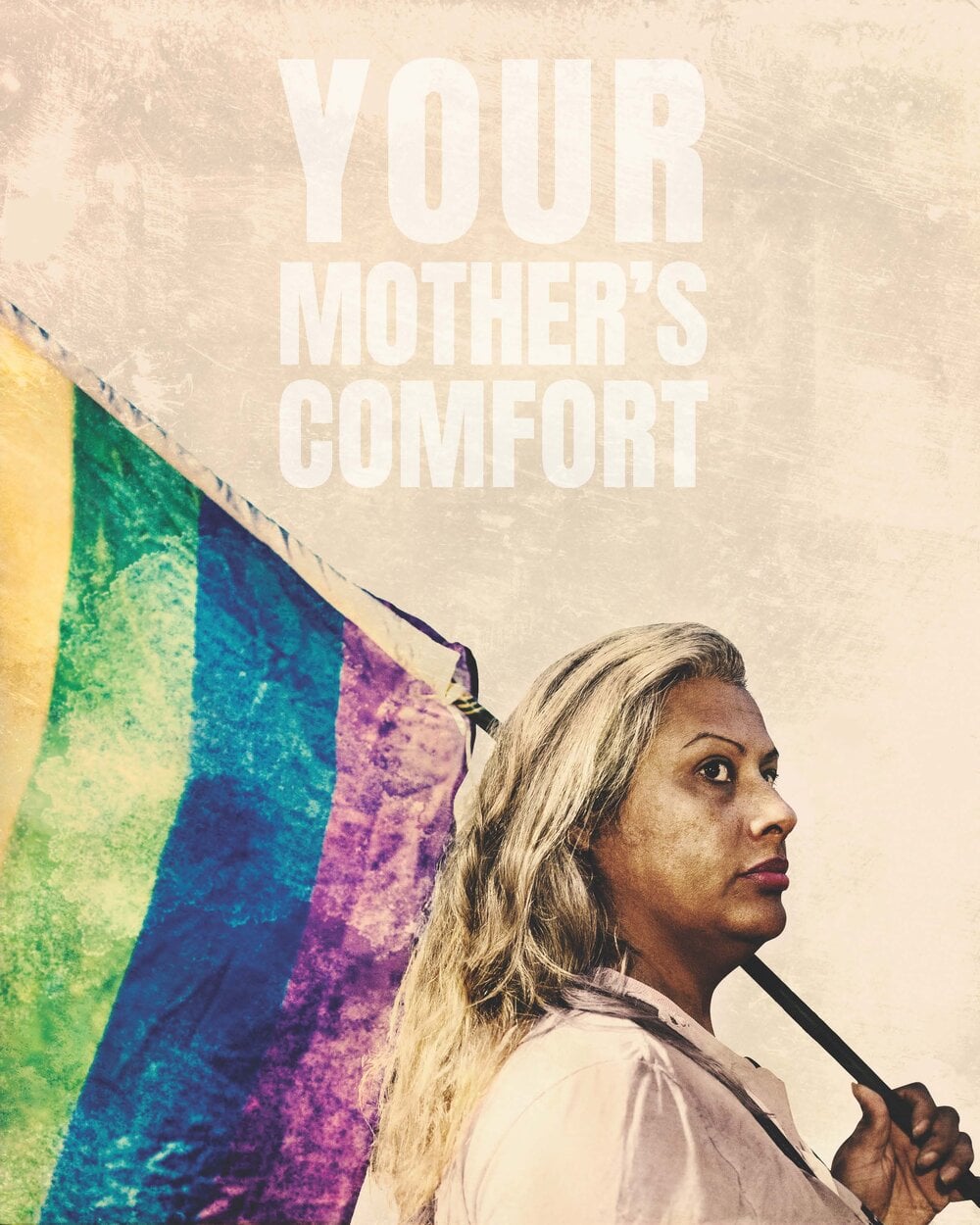
When did this happen?
Toward the end of August. It’s really cool. Filmmaking can be such a lonely and arduous process in general, but especially for this film because there wasn’t a crew. A lot of the time it was me by myself. Then my editor and second camera person, Madina, came in for about a year. There’s also a certain amount of distance that you have to keep from your subject.
How did you first become interested in storytelling?
I was living in Israel on a sabbatical year. I used to be the school teacher. I was traveling with my boyfriend at the time and applying for graduate schools. I saw a documentary about a Palestinian Village called Bil’in. The wall between Israel and Palestine destroyed their olive groves. An Israeli woman in the audience raised her hand during talkback. She said she’d witnessed a suicide bombing as a teen, and that it wasn’t until seeing this documentary that she was able to start sympathizing with Palestinian struggles. I was very impacted by that. It was insane to be able to enter into someone’s heart through storytelling. I applied to the Columbia Documentary Film Program at the Columbia School of Journalism, and got in.
What was it about film, as a medium, that you liked?
I think images are really powerful and film is a unique opportunity to make you feel embedded because it’s multi-sensorial. You’re reading text, but you’re also hearing and watching and feeling along with the characters in front of you. That feels unique and special. Film is limited in another way. For instance, you can read a novel over the course of weeks and it can unfold as your life is unfolding. A sculpture is something you can also experience over time in different ways. It’s not bound temporally, whereas film is.
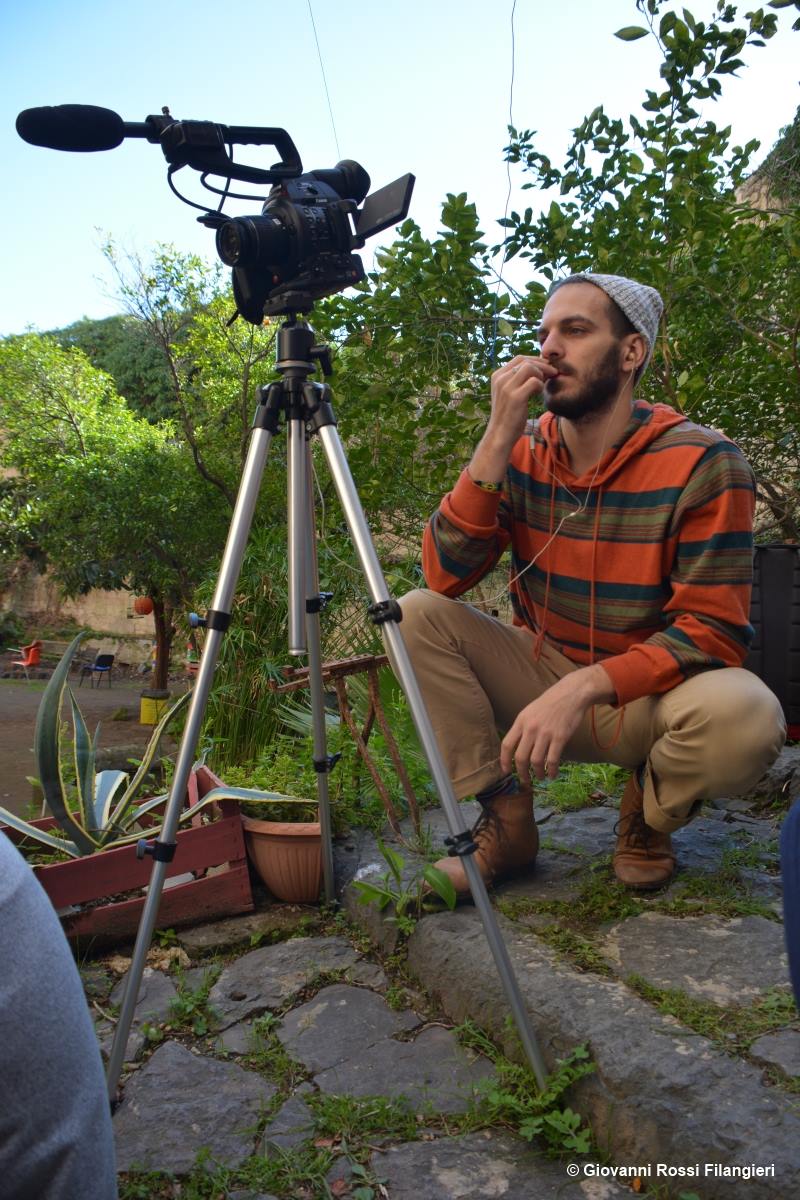


What kind of subjects do you find yourself drawn to?
I’m making a documentary right now about a sacred third gender from southern Italy called femminielli, from the region around Naples. I’m drawn to gender transgression as a revolutionary or alternative way of being in the world. I’ve always had questions about my own gender. I think also my own privileges compel me to want to elevate the voices of people who don’t have the same privileges that I do. I would feel remiss telling a story that wasn’t a kind of activism in some way.
Where does that come from?
Going to Berkeley and having my eyes totally unpeeled at a really young age. When I was nineteen, I worked for someone who became a very good friend and mentor, Billy Curtis. I was working at the Gender Equity Research Center. Berkeley just rocked my world and it made me cultivate criticality around everything. It also made me really rageful. I wanted things to be different. I wanted there to be justice, knowing that it is not possible, and that everything we do is small, but needing to do it anyway.
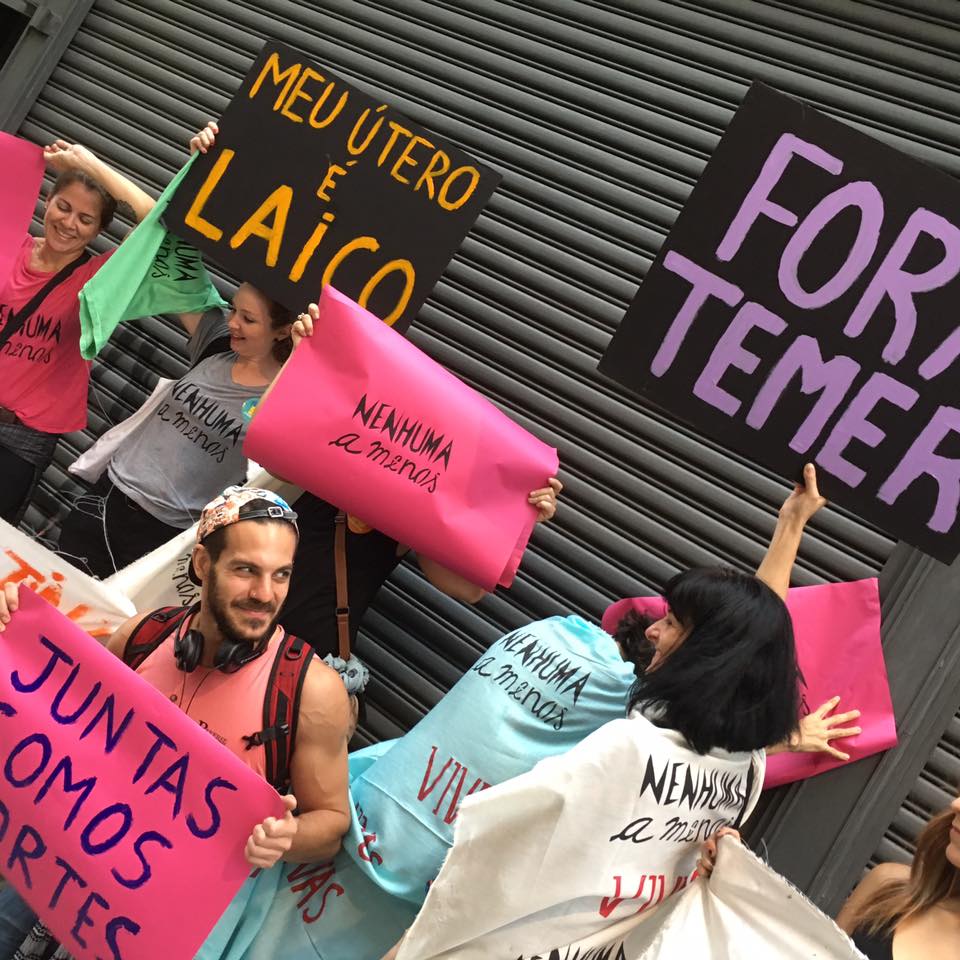


What is your relationship with your rage and how does it inform your work?
I feel ambivalent about my rage. It flares up when I’m confronted with something particularly horrible, but rage just feels really unproductive. I don’t actually find it terribly motivating to be pissed all the time. I find that when I am angry and I am approaching injustices, I’m at a disadvantage.
It doesn’t make sense to be rageful in the face of people who are also products of their environments and inculcated and absorbed into a system that has complete control over us. Nuance feels like the antidote for rage.
You said in an interview that sometimes someone will look at a film made about a “vulnerable” person, and the automatic response will be to have a paternalistic or pity-based response.
It is something that plagues me eternally. One thing that is really difficult around the trans experience, in my understanding, is how people’s dominant curiosities about trans bodies propagandize their own curiosities about the experience of trans people in the world.
I find that horribly offensive and disgusting. It is also hard to tell trans stories in a full and meaningful way without including all the different aspects of the trans life. So, in the film, there when you see scenes with people in the pool, dancing, topless you see sort of mostly naked trans bodies on display, but they’re having this jubilant experience of community. I’m not interested in satisfying people’s curiosity.
Pity makes people not understand that they are implicated in the experiences of other people. So, if you’re just like “boo hoo”, you’re not doing any of the work to confront yourself in relation to what you are confronting. America is responsible for the socioeconomic conditions in Brazil. American culture is responsible for so much of what happens in Latin America. You are not exonerated from your economic conditions–the economic conditions that other people live in and that you live in.
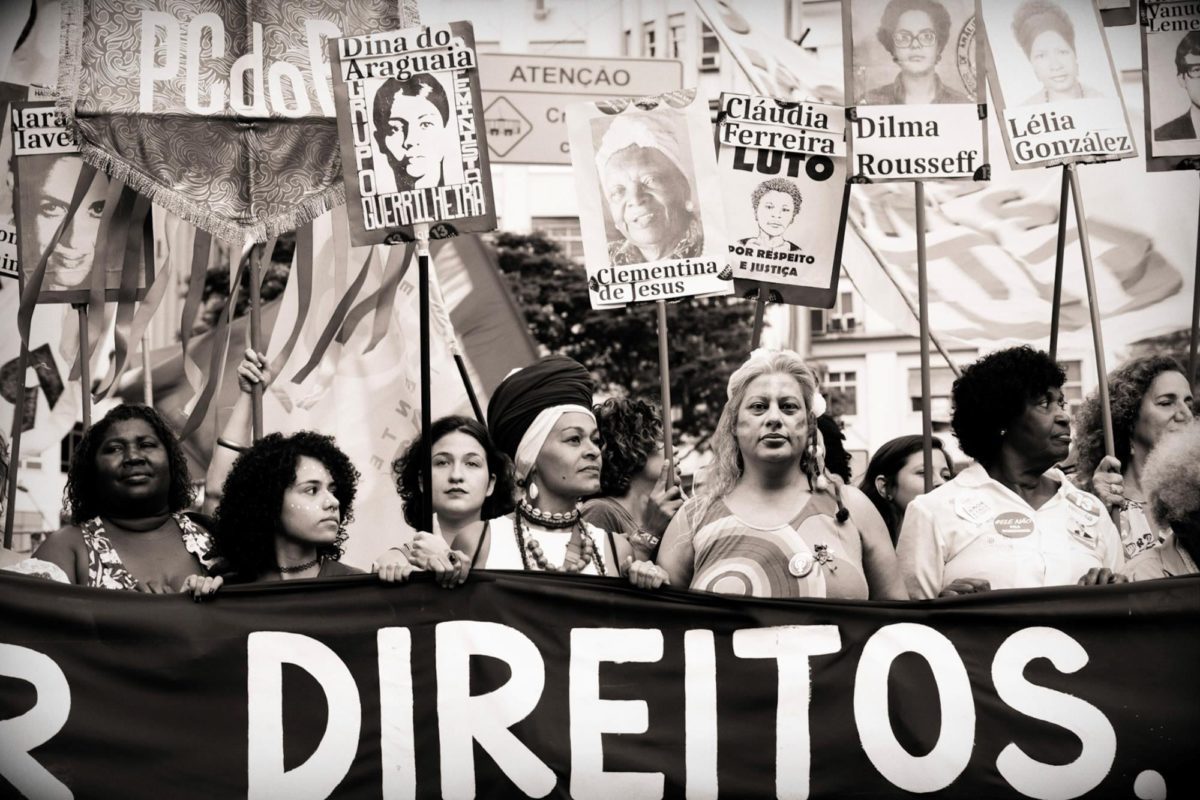


From Your Mother’s Comfort (ACONCHEGO DA TUA MÃE)
In my experience as a viewer, you subvert pity by showing jubilance.
Jubilance is just happening. Part of Indianara’s political project is about beer. “Unless you are drinking a beer in the bar with me, you’re not welcome in my revolution.” So, there’s a need to build trust, but not just trust: there’s a need to love and coexist. Convivencia is a really big and important part of Casa Nem.
There are ways that protest culture and revolutionary culture exist in Latin America that are unfathomable in the United States and North America. People here have so much respect for institutions. People believe on this very fundamental cultural level that the government is here to protect and serve them. People in Latin America do not favor that delusion. Their democracy is super young and always teetered a bit on the edge. Corruption is enormous and out of control.
Right, so revolt looks and feels different.
Yeah. People are occupying buildings. People are not occupying buildings like that in North America.
And, all this casting the police as victims–that just doesn’t even compute from a Brazilian standpoint. The military police in Brazil are brutal, horrific, sanctioned murderers of poor people. That’s what they do. And there are militias in Rio that protect their own communities. There’s a shadow side to all of that. Any time there’s a power play and the state vacates, other kinds of problematic social forces enter and put people’s lives in danger.
In which ways would you say your life has changed the most throughout this film, and this project?
My ideas about the world have changed so much. Indianara actually goes by Indianari now.
They are a person with so much integrity. They’re vegan, anticapitalist, and constantly in service to their community. Somehow they have this incredible drive: a well of energy to be in service to our community. It makes me feel like I want to be in service to them. I feel like a completely different person.
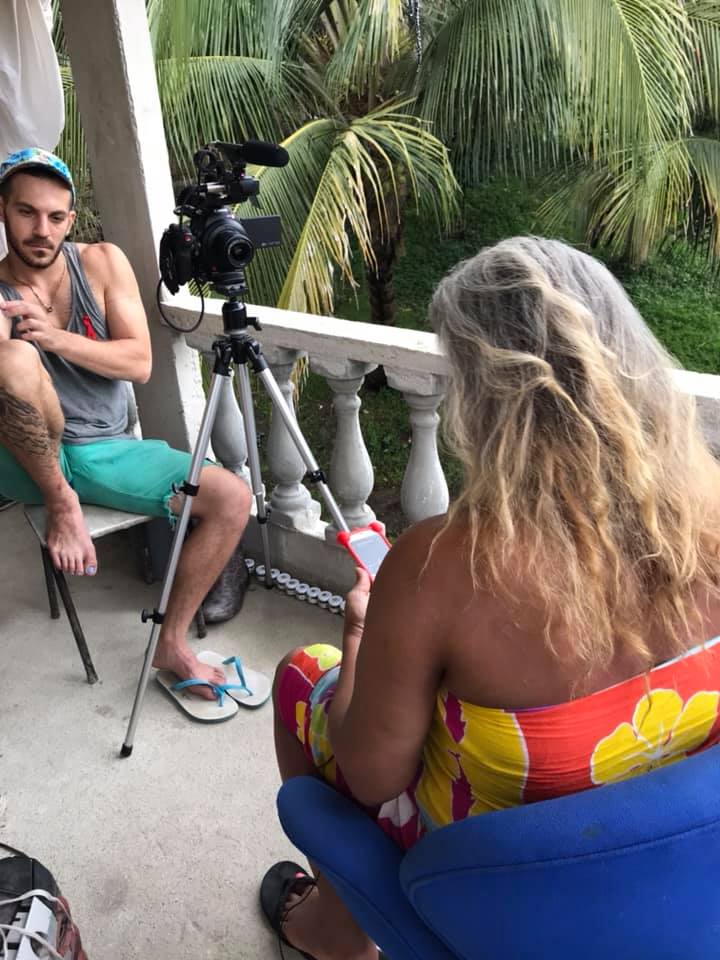


Interviewing Indianara, the lead figure in Your Mother’s Comfort
What does service mean to you?
Because I have a certain set of skills, I’m going to use what I have at my disposal to do right by my community. But also, there can be a lot of pitfalls and dangers in stepping outside of my own identity to advocate for others outside my community. The attempt to protagonize people who have less privilege than I do is a very complicated and rigorous process. It has required me to be really invested in the idea of divesting resources away from one place and channeling those resources into places that have been disinvested and disenfranchised habitually and systematically, for generations and generations.
A lot of trans people struggle with access to employment in Brazil, especially. There’s so much stigma and such an evangelical conservative Christian society. The body is so centered increasingly in Brazilian culture, which in some ways makes it harder for trans bodies to just walk and occupy space.
That’s where respectability politics plays the role of protecting certain people. In Brazil, there’s more open surface violence, and the body is scrutinized. And it’s hot. You’re not covering up with a lot of clothes. Everybody is exposed, it’s tropical. There is this sensuality that can really augment the danger.
Where do you find your joy?
There’s something I find extremely joyful about the endeavor of self-discovery. I learned throughout the process of being in Brazil with Indianara and in all of the projects I do. The learning inherent in the process is joyful, like therapy. It is hard and so euphoric to know oneself and the world more deeply, and to understand that the way one experiences the world is through one’s own lens. I love undermining or breaking through ways of thinking. If I have been thinking of something in a certain way without realizing it, I fucking love when it is brought to my attention.
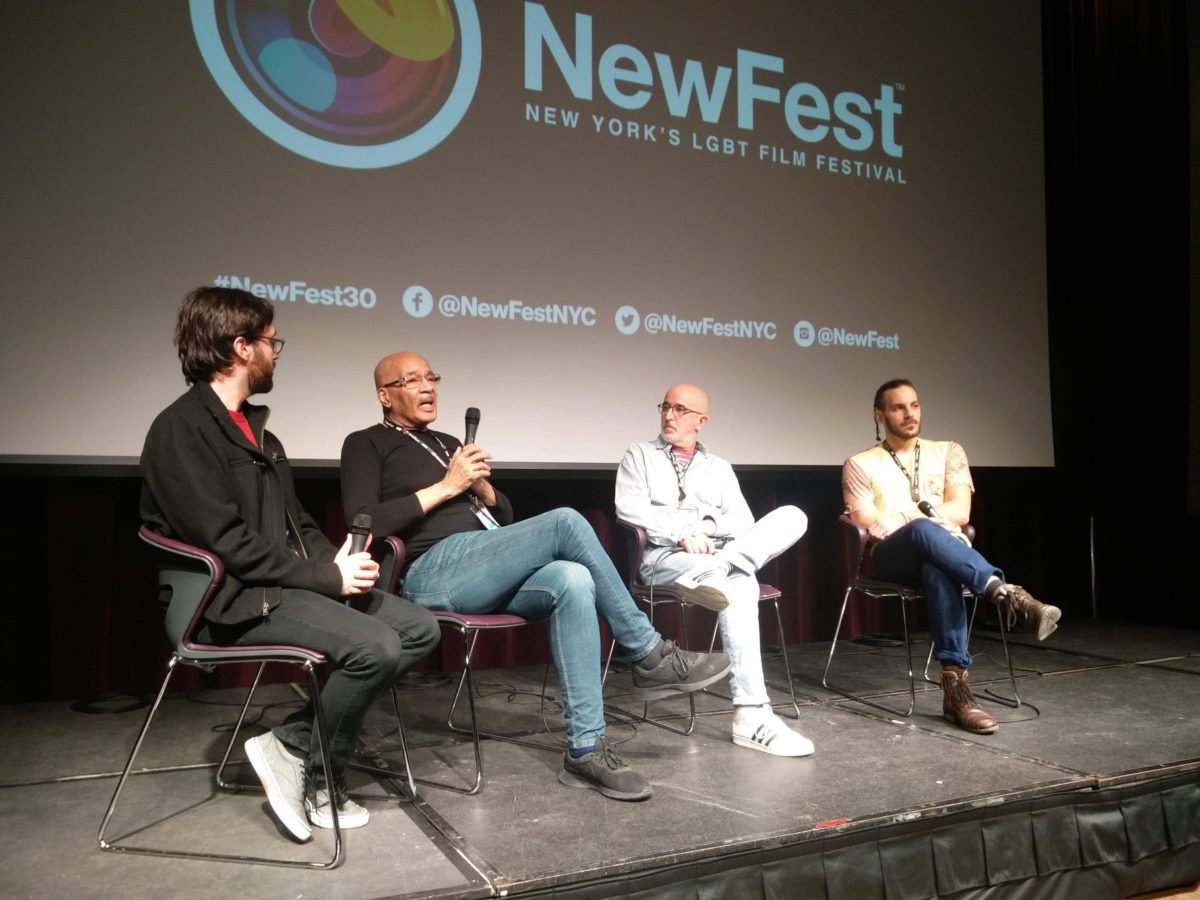


Is there a moment that comes to mind when that happened to you, in a drastic way?
When I was filming with Indianara. There is a moment where they are at the table with all their folks. I’m there, hanging out, and there are fifteen big, giant beers. Indianara said to me, “you’re going to pay for this beer and you’re going to pay for fifteen more beers. We’re going to have seven beers here and eight of them are going to Casa Nem.” And I thought, “am I going to break through this barrier as a documentarian and pay for this person? Am I essentially buying my story?” But my friend said, “just pay for it.” And I was like, “you know what? I should pay for it. I should be paying this person for letting me be in their life and tell their story.”
I have so much resource and privilege. I’m not going to spend twenty U.S. dollars for like fifteen Brazilian beers so that these people can drink? I have more resources. I have no excuse. That’s actually a big question in the documentary community right now. Sam Feder, who directed Disclosure, was on the jury that awarded my documentary the prize. In a conference they talked about how it’s radical to pay your subjects, especially if your subject is trans. If you are being active and advocating for a community, you need to take divest resources. And I love that.
It sounds like a paradigm shift within documentary.
I studied at Columbia University. It’s so fucking straight-laced. It’s dominant culture continuing to reproduce itself to create conventions that we are not beholden to, in order to make those in power continue to feel that their power is legitimate. And I’m happy to subvert those paradigms at any opportunity. That’s really what it’s been like for me over the last few years: subverting paradigms inside myself through therapy and self-discovery, and also subverting schemas that I have ossified about the world from my life.
How would you like to be remembered?
I don’t have a lot of feelings about being remembered at all. In fact, I have no investment in being remembered. I prefer not to be remembered because I don’t feel that my existence is that important. I’m happy to have the stories that I tell about others be remembered. I think that the people that love me will remember me as a loving person. That’s what matters to me.
To learn more about Your Mother’s Comfort, visit the documentary website.
The Antidote for Rage is Nuance
In Conversation with Adam Golub


Photo by Cid Roberts
Adam Golub is an Israeli-American documentarian, media artist and videographer based in Brooklyn, NY. He completed his master’s in journalism at Columbia University in 2012 and the Collaborative Studio program at UnionDocs Center for Documentary Art in 2014. His film “I Was Here First” (2015), about the exodus of DIY art spaces from Williamsburg, Brooklyn, premiered at DOC NYC. His film “Skin,” (2017) a portrait of a young black trans activist in Rio de Janeiro, won Outstanding Documentary Short at Art of Brooklyn Festival and Best New York Short at Newfest, New York. His feature doc “Your Mother’s Comfort” (2020) premiered at Sheffield Doc/Fest and won the Grand Jury Award at Outfest, Los Angeles, as well as honorable mention at NewFest, New York.
Interviewed by Billy Lezra | October 8, 2020
The following interview has been edited and condensed for clarity.
How did you find out that you won the Outfest Grand Jury Prize for Your Mother’s Comfort?
They emailed us. I was sitting on a lake next to South Lake Tahoe with my friend and her mom and grandmother. I just started crying.



When did this happen?
Toward the end of August. It’s really cool. Filmmaking can be such a lonely and arduous process in general, but especially for this film because there wasn’t a crew. A lot of the time it was me by myself. Then my editor and second camera person, Madina, came in for about a year. There’s also a certain amount of distance that you have to keep from your subject.
How did you first become interested in storytelling?
I was living in Israel on a sabbatical year. I used to be the school teacher. I was traveling with my boyfriend at the time and applying for graduate schools. I saw a documentary about a Palestinian Village called Bil’in. The wall between Israel and Palestine destroyed their olive groves. An Israeli woman in the audience raised her hand during talkback. She said she’d witnessed a suicide bombing as a teen, and that it wasn’t until seeing this documentary that she was able to start sympathizing with Palestinian struggles. I was very impacted by that. It was insane to be able to enter into someone’s heart through storytelling. I applied to the Columbia Documentary Film Program at the Columbia School of Journalism, and got in.
What was it about film, as a medium, that you liked?
I think images are really powerful and film is a unique opportunity to make you feel embedded because it’s multi-sensorial. You’re reading text, but you’re also hearing and watching and feeling along with the characters in front of you. That feels unique and special. Film is limited in another way. For instance, you can read a novel over the course of weeks and it can unfold as your life is unfolding. A sculpture is something you can also experience over time in different ways. It’s not bound temporally, whereas film is.



What kind of subjects do you find yourself drawn to?
I’m making a documentary right now about a sacred third gender from southern Italy called femminielli, from the region around Naples. I’m drawn to gender transgression as a revolutionary or alternative way of being in the world. I’ve always had questions about my own gender. I think also my own privileges compel me to want to elevate the voices of people who don’t have the same privileges that I do. I would feel remiss telling a story that wasn’t a kind of activism in some way.
Where does that come from?
Going to Berkeley and having my eyes totally unpeeled at a really young age. When I was nineteen, I worked for someone who became a very good friend and mentor, Billy Curtis. I was working at the Gender Equity Research Center. Berkeley just rocked my world and it made me cultivate criticality around everything. It also made me really rageful. I wanted things to be different. I wanted there to be justice, knowing that it is not possible, and that everything we do is small, but needing to do it anyway.



What is your relationship with your rage and how does it inform your work?
I feel ambivalent about my rage. It flares up when I’m confronted with something particularly horrible, but rage just feels really unproductive. I don’t actually find it terribly motivating to be pissed all the time. I find that when I am angry and I am approaching injustices, I’m at a disadvantage.
It doesn’t make sense to be rageful in the face of people who are also products of their environments and inculcated and absorbed into a system that has complete control over us. Nuance feels like the antidote for rage.
You said in an interview that sometimes someone will look at a film made about a “vulnerable” person, and the automatic response will be to have a paternalistic or pity-based response.
It is something that plagues me eternally. One thing that is really difficult around the trans experience, in my understanding, is how people’s dominant curiosities about trans bodies propagandize their own curiosities about the experience of trans people in the world.
I find that horribly offensive and disgusting. It is also hard to tell trans stories in a full and meaningful way without including all the different aspects of the trans life. So, in the film, there when you see scenes with people in the pool, dancing, topless you see sort of mostly naked trans bodies on display, but they’re having this jubilant experience of community. I’m not interested in satisfying people’s curiosity.
Pity makes people not understand that they are implicated in the experiences of other people. So, if you’re just like “boo hoo”, you’re not doing any of the work to confront yourself in relation to what you are confronting. America is responsible for the socioeconomic conditions in Brazil. American culture is responsible for so much of what happens in Latin America. You are not exonerated from your economic conditions–the economic conditions that other people live in and that you live in.



From Your Mother’s Comfort (ACONCHEGO DA TUA MÃE)
In my experience as a viewer, you subvert pity by showing jubilance.
Jubilance is just happening. Part of Indianara’s political project is about beer. “Unless you are drinking a beer in the bar with me, you’re not welcome in my revolution.” So, there’s a need to build trust, but not just trust: there’s a need to love and coexist. Convivencia is a really big and important part of Casa Nem.
There are ways that protest culture and revolutionary culture exist in Latin America that are unfathomable in the United States and North America. People here have so much respect for institutions. People believe on this very fundamental cultural level that the government is here to protect and serve them. People in Latin America do not favor that delusion. Their democracy is super young and always teetered a bit on the edge. Corruption is enormous and out of control.
Right, so revolt looks and feels different.
Yeah. People are occupying buildings. People are not occupying buildings like that in North America.
And, all this casting the police as victims–that just doesn’t even compute from a Brazilian standpoint. The military police in Brazil are brutal, horrific, sanctioned murderers of poor people. That’s what they do. And there are militias in Rio that protect their own communities. There’s a shadow side to all of that. Any time there’s a power play and the state vacates, other kinds of problematic social forces enter and put people’s lives in danger.
In which ways would you say your life has changed the most throughout this film, and this project?
My ideas about the world have changed so much. Indianara actually goes by Indianari now.
They are a person with so much integrity. They’re vegan, anticapitalist, and constantly in service to their community. Somehow they have this incredible drive: a well of energy to be in service to our community. It makes me feel like I want to be in service to them. I feel like a completely different person.



Interviewing Indianara, the lead figure in Your Mother’s Comfort
What does service mean to you?
Because I have a certain set of skills, I’m going to use what I have at my disposal to do right by my community. But also, there can be a lot of pitfalls and dangers in stepping outside of my own identity to advocate for others outside my community. The attempt to protagonize people who have less privilege than I do is a very complicated and rigorous process. It has required me to be really invested in the idea of divesting resources away from one place and channeling those resources into places that have been disinvested and disenfranchised habitually and systematically, for generations and generations.
A lot of trans people struggle with access to employment in Brazil, especially. There’s so much stigma and such an evangelical conservative Christian society. The body is so centered increasingly in Brazilian culture, which in some ways makes it harder for trans bodies to just walk and occupy space.
That’s where respectability politics plays the role of protecting certain people. In Brazil, there’s more open surface violence, and the body is scrutinized. And it’s hot. You’re not covering up with a lot of clothes. Everybody is exposed, it’s tropical. There is this sensuality that can really augment the danger.
Where do you find your joy?
There’s something I find extremely joyful about the endeavor of self-discovery. I learned throughout the process of being in Brazil with Indianara and in all of the projects I do. The learning inherent in the process is joyful, like therapy. It is hard and so euphoric to know oneself and the world more deeply, and to understand that the way one experiences the world is through one’s own lens. I love undermining or breaking through ways of thinking. If I have been thinking of something in a certain way without realizing it, I fucking love when it is brought to my attention.



Is there a moment that comes to mind when that happened to you, in a drastic way?
When I was filming with Indianara. There is a moment where they are at the table with all their folks. I’m there, hanging out, and there are fifteen big, giant beers. Indianara said to me, “you’re going to pay for this beer and you’re going to pay for fifteen more beers. We’re going to have seven beers here and eight of them are going to Casa Nem.” And I thought, “am I going to break through this barrier as a documentarian and pay for this person? Am I essentially buying my story?” But my friend said, “just pay for it.” And I was like, “you know what? I should pay for it. I should be paying this person for letting me be in their life and tell their story.”
I have so much resource and privilege. I’m not going to spend twenty U.S. dollars for like fifteen Brazilian beers so that these people can drink? I have more resources. I have no excuse. That’s actually a big question in the documentary community right now. Sam Feder, who directed Disclosure, was on the jury that awarded my documentary the prize. In a conference they talked about how it’s radical to pay your subjects, especially if your subject is trans. If you are being active and advocating for a community, you need to take divest resources. And I love that.
It sounds like a paradigm shift within documentary.
I studied at Columbia University. It’s so fucking straight-laced. It’s dominant culture continuing to reproduce itself to create conventions that we are not beholden to, in order to make those in power continue to feel that their power is legitimate. And I’m happy to subvert those paradigms at any opportunity. That’s really what it’s been like for me over the last few years: subverting paradigms inside myself through therapy and self-discovery, and also subverting schemas that I have ossified about the world from my life.
How would you like to be remembered?
I don’t have a lot of feelings about being remembered at all. In fact, I have no investment in being remembered. I prefer not to be remembered because I don’t feel that my existence is that important. I’m happy to have the stories that I tell about others be remembered. I think that the people that love me will remember me as a loving person. That’s what matters to me.

